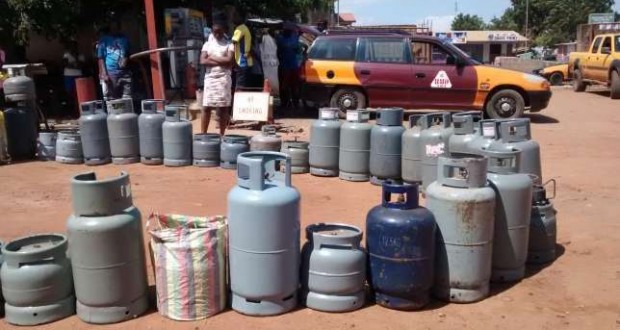An Economics Professor at the University of Ghana wants government to, as a matter of urgency, remove taxes on liquified Petroleum Gas (LPG).
Eric Osei Assibey said, this is to reduce the burden of the hike in the cost of the commodity, on the poor and promote sustainable development.
LPG was first introduced as a cheaper fuel source to replace wood and other environmentally unfriendly fuel sources.
But now, its price build-up is made up of more than 20 per cent of taxes imposed over the years.
According to industry players, the indicative price is now GH¢6.86 from GH¢6.56 in the previous window.
The ex-refinery price has moved from GH¢4.25 in the previous window to GH¢4.55 currently. The current window on the international market closed on July 11, 2021, and the international price has gone up by 10.7%.
This will reflect in about a 5- 6% increase in the local price. This will push up the pump price to about 7.25 Ghana Cedis next widow beginning on Friday, July 16.
All of this, is expected to reflect in the average household 14.5kg cylinder costing the Consumer GH¢106. An increase of about GH¢4 from the previous current window price of GH¢102.
In an interview on the Super Morning Show, Prof. Osei Assibey explained that the recently imposed levies should be reviewed to ensure we are not unfairly targeting and overburdening the poor instead of protecting them.
“If you look at the levies, in my view, they are quite regressive in nature. Especially, when you over concentrate on VAT you will realise that it is the poor that ends up paying more within the big cities and so the targeted response is making sure it becomes more progressive so that it is the wealthy that tend to pay more.”
He then categorically stated that taxes on LPG should be removed to promote sustainable development, “Removing taxes or levies from products like LPG, if we are serious about sustainable development and conserving our environment, because these were targeted to encourage the poor to use more of LPG.
"Otherwise, it is going to be counterproductive in the sense that, they are really going to drive their demands towards the environmentally harmful energy usage products.”
Latest Stories
-
4-year-old cured leper walks again after Bawumia sponsored her special surgery
1 hour -
Dorcas Affo-Toffey, earns dual Master’s Degrees in Energy, Sustainable Management, and Business Administration
1 hour -
T-bills auction: Government got GH¢21.5bn in November 2024, lower than target
5 hours -
Ghana to return to single digit inflation in quarter one 2026
5 hours -
Panama’s president calls Trump’s Chinese canal claim ‘nonsense’
5 hours -
Manmohan Singh, Indian ex-PM and architect of economic reform, dies at 92
5 hours -
Government is not been fair to WAEC – Clement Apaak on delay to release WASSCE results
6 hours -
Bayer Leverkusen’s Jeremie Frimpong donates to Osu Children’s Home in Ghana
9 hours -
GPL 2024/25: Heart of Lions beat Young Apostles to go three points clear
9 hours -
Dance battles, musical chairs light up Joy FM Party in the Park
9 hours -
Kwabena Kwabena, Camidoh, Kwan Pa Band, others rock Joy FM Family Party in the Park
10 hours -
GPL 2024/2025: Aduana beat struggling Legon Cities
10 hours -
GPL 2024/25: Bechem United fail to honor match against Holy Stars
10 hours -
Cooking competition takes centrestage at Joy FM Family Party In The Park
10 hours -
Album review: ‘Wonder’ by Nana Fredua-Agyeman Jnr
12 hours

